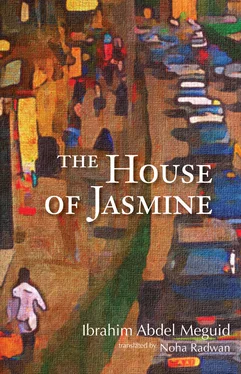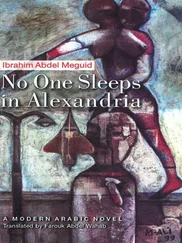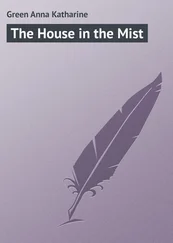The men on the stage craned their necks to look at us, and Hagg Luqman greeted us with a slight nod of his big head, while al-Dakruri made room for us to be seated in the front row. We put on a grave look, appropriate for the “men of Dikhayla,” as he had called us. I heard Magid say that we would never be able to walk out of this trap. Shortly after we sat down, al-Dakruri approached us and grabbed me by the arm. He wanted me to follow him, so I did, and it struck me that I looked like a blind man being led by the arm. We stopped behind the stage and he said, “Wait here and don’t move.”
I stood there on ground which had been covered with sand, paying no attention to what he was up to. I was trying to read some of the calligraphy printed on the sides of the tent when he returned, carrying a small bulging envelope.
“The Hagg offers this envelope to you, and you will be responsible for the votes of the people of Dikhayla,” al-Dakruri said. “I know you can do it.”
Have I become a machine whose hand automatically stretches out to snatch up money? Hadn’t I proved my honesty on the day of Begin’s visit? I almost laughed, thinking that maybe al-Dakruri knew me better than I knew myself.
“Five hundred pounds,” he said.
“Don’t worry. He will win and all the competing candidates will fail,” I said, after a few moments of silence. I was wondering whether I should share the money with Magid and Hassanayn or whether I should even tell them about it, but I boldly said, “This is a small sum for a neighborhood such as Dikhayla.”
Al-Dakruri’s eyes gleamed like those of a fox.
“Then we can just give it back,” he said. I was flustered, even though I was capable of sending him flying in the air with a single blow.
“Give my congratulations to the Hagg. The votes of Dikhayla will all be for him,” I said. Then I took the money out of the envelope and stuffed it in my pocket. I was walking away from him when he stopped me and whispered in my ear: “The Hagg will give me an apartment.”
#
I found myself walking toward the street which I had been avoiding for some time. I saw that the house of jasmine was completely dark. No sweet scent met my nose anymore. The flowers were wilted, and the leaves on the trees were dry and dusty and many of them had fallen to the street, where they crackled under my feet. I saw a huge lock on the gate. Under the light of the sole street lamp, which was in front of ‘Abd al-Salam’s house, I looked at the pipes on the walls of the house of jasmine, where the paint was peeling and moisture had left several large stains, and I saw a ferret climbing upward.
A man and a woman got married, and the next morning several members of the bride’s family went to visit them. When no one opened the door, they broke it down and found the man on top of his bride, unable to pull his animal out of her. They were both in tears, having tried in vain all night to separate themselves. The relatives wrapped the couple in a sheet and took them to a hospital, where they were separated and returned to their apartment by midnight.
Two days later, the same thing happened again, and the man cried for help from the neighbors, who carried them to the hospital, wrapped in the sheet. They returned, separated, shortly after midnight.
People started whispering, pointing up at the high apartment and laughing every time they passed the building. Then a month passed and nothing more happened. No one knew that the couple had lost their ability to have intercourse.
But finally they went back to it, and then tore the flesh off of their own faces with their fingernails out of fear and repentance for what they had done. The man had to cry for the neighbors’ help once again, and they took the couple to the hospital to be separated, and the couple returned home at dawn. In the morning the man stood alone on the fifth-floor balcony, screaming and slapping his face. He was looking at the street below as if he were going to jump off the balcony. His bride came out and threw herself to the street. He watched her body hit the pavement and make one movement, like a final throb.
I opened the door to the balcony and walked out. I was wrapped in the bright daylight that extended infinitely in front of me and felt as if I were flying in space. I looked down and saw the sea as an azure velvet carpet, and I could almost feel its softness as I stood barefoot on the balcony’s tiled floor. I looked up and saw the dome of the sky, so close. Its pure blue tempted me to jump up and touch it with my hands. This was a day unlike any other that I could remember. Perhaps God had returned to live with us as He had when we were children.
I took my fishing rod, my basket, line and hooks, and went to the beach. I hadn’t planned on going fishing, and hadn’t bought any bait, but I figured that I would find someone to sell me some on the beach. This was a day on which nothing could go wrong.
As soon as I closed my door and turned to walk down the stairs, I saw a pretty child going up. He was having trouble climbing the stairs and had placed his hands on his knees and was pressing on them with every step he climbed. He was wearing a white galabiyya and his surprise at seeing me showed in his bright black eyes, so I smiled at him. Before I had a chance to ask him what he wanted and why he had come into the building, I heard a woman calling him from one of the floors above.
“Hurry, Ziyad,” she said.
“All right,” he replied, and sighed, looking at me with a smile as if he were asking me to witness his exhaustion and the height of the stairs. So one of the apartments must be occupied, and this beautiful child only went down this morning so that I could see him on his way back and add to my joys of the day. But when had these residents moved into their apartment? When had they moved their furniture? How had I failed to notice them? I found that I was galloping down the stairs like a horse.
In the evening, the weather changed, and when it became cold I realized that fall was coming to an end. We were nearing the rainy days, when the rain would be so heavy that you would think it was unaware of the presence of people on earth.
“You have obviously become a skillful fisherman,” said Magid when I went to the pharmacy to give him part of the catch. We were sitting at a small desk in a corner of the pharmacy.
“I’m thinking of buying another fishing kit,” I said, and it was true. The area behind the airport was rocky and deep and had plenty of fish on warm and hot days. I was always relieved by fishing — fighting with the fish and wishing I could catch the heart of the sea. Fishing to me was not just a hobby or an amusement, but nor did I need the fish, since I wasn’t supporting a family who might need to eat them. To me fishing was a fight, but that day I didn’t feel the same power that I had felt in the past.
“I’m sorry that I can’t come to the café these days,” Magid said. “Dr. Musa has gone to Kuwait, and there is no one to help me here.”
“I haven’t been going there myself,” I said, then added with a wide smile, “I saw some new residents this morning.”
“Really? How wonderful. You are a hero to have stayed alone in the building for so long. I only hope that they don’t throw their furniture into the sea.”
We were both laughing when a woman walked into the pharmacy. She was wearing a cheap dress and carrying a child who could not stop coughing, trembling as he did so. She was holding him tightly in her arms to keep him from falling. Magid got up and stood behind the counter. She could not raise her hand to give him the prescription, so he leaned forward and took it from her. Then he went to the shelves where he kept the medicines and brought her what she needed. I was looking at the child’s face, which I could see over his mother’s shoulder — a tiny pale face with the tongue hanging out. Then I heard her say: “Here are two pounds.” I saw Magid shake his head and smile. He reached out and patted the child on the head, then he put the medicines in a bag and leaned over the counter again to hang the bag on the woman’s fingers. She turned toward me with an embarrassed smile, then hurried out.
Читать дальше












